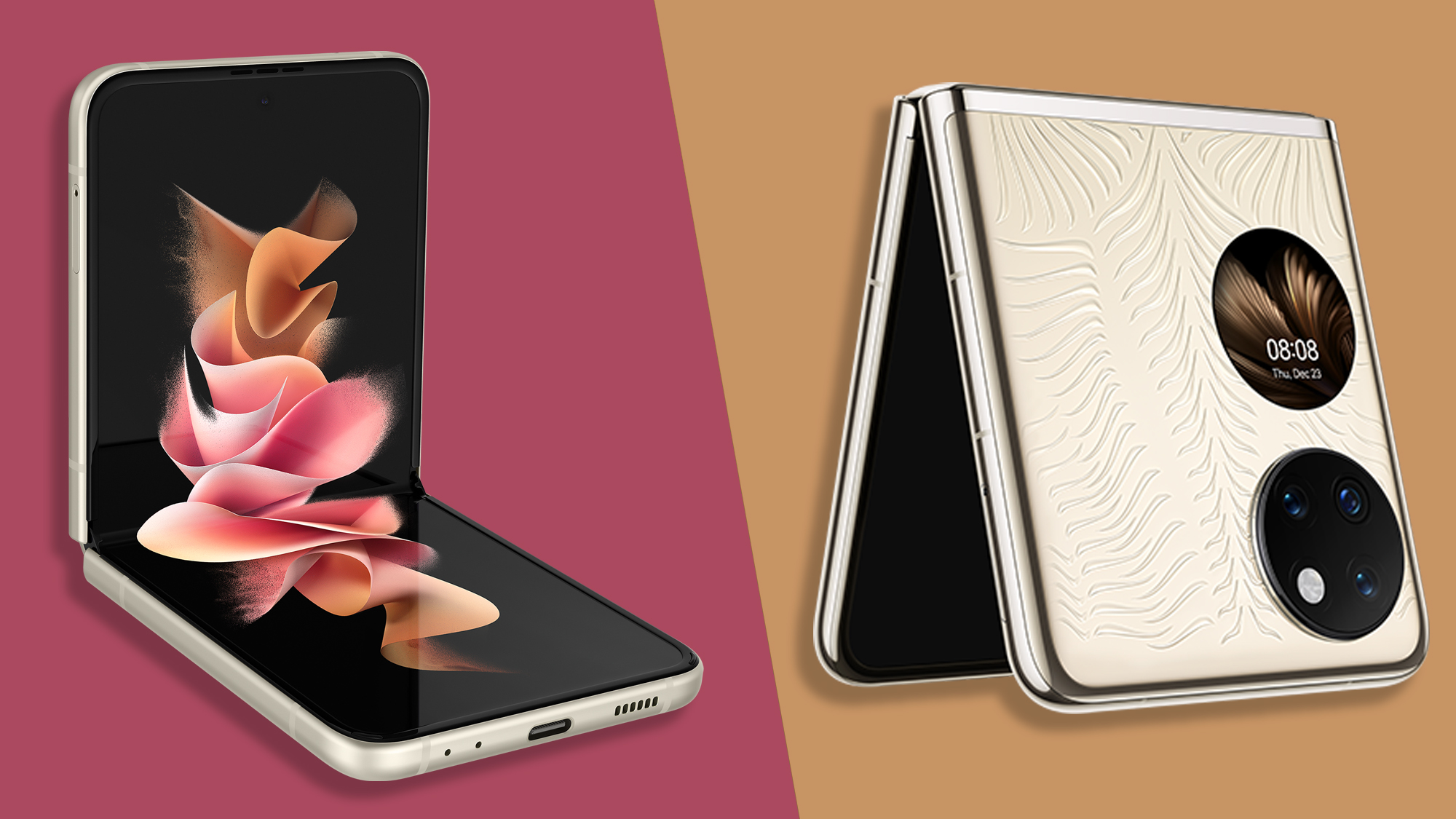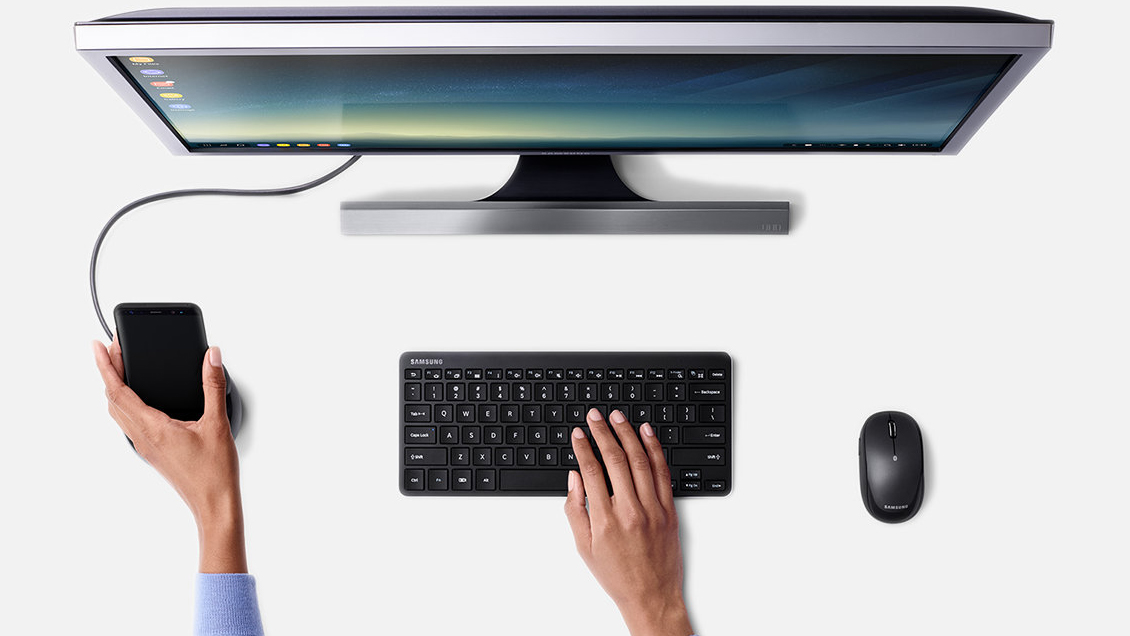Samsung killed the perfect smartphone for remote work with a dumb move
The Galaxy Flip 3 could have been the perfect smartphone for WFH but Samsung messed up badly

Back in 2017, Samsung introduced a feature called Dex that transformed your Android smartphone into a fully fledged desktop PC complete with mouse and keyboard support. It was - for many users - a life changer and provided a compelling alternative to other desktop OS like Windows, Ubuntu or MacOS.
Dex doesn’t require any physical connection to work if you have the right Samsung smartphone, which paves the way to what I’d consider to be the holy grail of hybrid working: a smartphone that can replace your laptop/desktop and doesn’t require any physical cable.
I thought the Samsung Galaxy Z Flip 3 would have been that phone, but it turns out Samsung omitted Dex in this foldable smartphone, and the most frustrating thing about it is that there’s no reasonably logical reason to explain the decision. And Dex users who jumped on the foldable bandwagon are understandably furious, especially as its bigger brother, the Fold3 supports Dex seamlessly.
What is Dex again?
Dex is probably the most underrated feature Samsung has ever brought to market. It is a virtual desktop that lives on your smartphone and doesn’t impede its use. You can still make calls, send and receive text messages and more. What it does allow is a more desktop-friendly experience with full support for input peripherals, something that radically changes the meaning of productivity on mobile devices.
For businesses, it means unifying and simplifying end clients. That means one device to protect (and secure), one device to connect, one device to maintain. A Samsung smartphone could be paired with an unlimited 5G business phone plan, allowing more than one account to co-exist on the handset (via Samsung Secure Folder) and delivering the sort of seamless transition that surpasses what exists in traditional laptops.

Why the Flip3 is best hybrid work smartphone
There are three features that - together - make the Flip 3 the ideal hybrid work smartphone. It has 5G, wireless charging and can flip 180-degrees. While that sounds like a gimmick to many, the flex mode does offer something that no other smartphone does, the ability to vary the front facing/selfie camera point of view. And it does so without a third-party peripheral like a docking station.
What that means is a better video conferencing experience especially given the phone’s dual speakers and 10-megapixel front facing, which is an improvement of an order of magnitude compared to what most business laptops offer.
So there you have it, a phone that could have aspired to bigger things, the first real device that could have challenged the hegemony of laptops and desktops in the workplace without looking out of place. But it won’t happen as there’s no Dex on the Flip3 and we don’t know why.
It has nothing to do with the hardware as the phone is powerful enough to handle Dex even wirelessly; fast Wi-Fi means that even 4K is doable with compatible hardware. It has nothing to do with the foldable form factor as the Fold3 does come with Dex as previously mentioned.
What’s next for Dex?
We can only hope that Samsung will roll out a Dex-inclusive update for the Flip 3 and integrate Dex in the Flip 4. One UI 4.1 is the latest firmware running on most Flip 3 smartphones and One UI 5.0 is likely to debut as a beta program later this year. Beyond this, the future of Dex at Samsung remains a mystery; the Korean tech giant has been coy about Dex and its US landing page doesn’t mention Windows 11 and hasn’t been refreshed for a while, probably because it is now considered as a pure B2B/enterprise solution.
There have been a handful of Dex-friendly accessories launched though, like the Samsung Smart Keyboard Trio 500 or the Samsung Smart Monitor M8 and we’d be surprised if Samsung pulls the plug on such a promising technology.
Microsoft and Samsung have a long-standing partnership that could go further than just bundling Microsoft Office applications and its OneDrive cloud storage service with Samsung Galaxy smartphones. Dex can run a virtualized Windows desktop and apps via enterprise ready VDI solutions and we expect Microsoft to further consolidate this alliance, leveraging Azure’s clout and pushing smartphones as the ultimate thin client for the new hybrid working era.
- These are the best business smartphones around
Are you a pro? Subscribe to our newsletter
Sign up to the TechRadar Pro newsletter to get all the top news, opinion, features and guidance your business needs to succeed!

Désiré has been musing and writing about technology during a career spanning four decades. He dabbled in website builders and web hosting when DHTML and frames were in vogue and started narrating about the impact of technology on society just before the start of the Y2K hysteria at the turn of the last millennium.